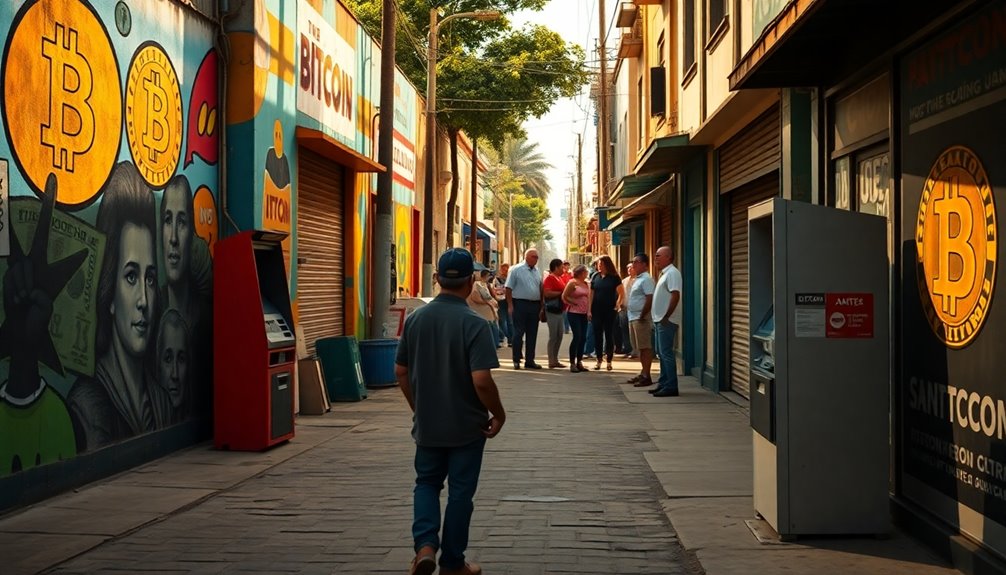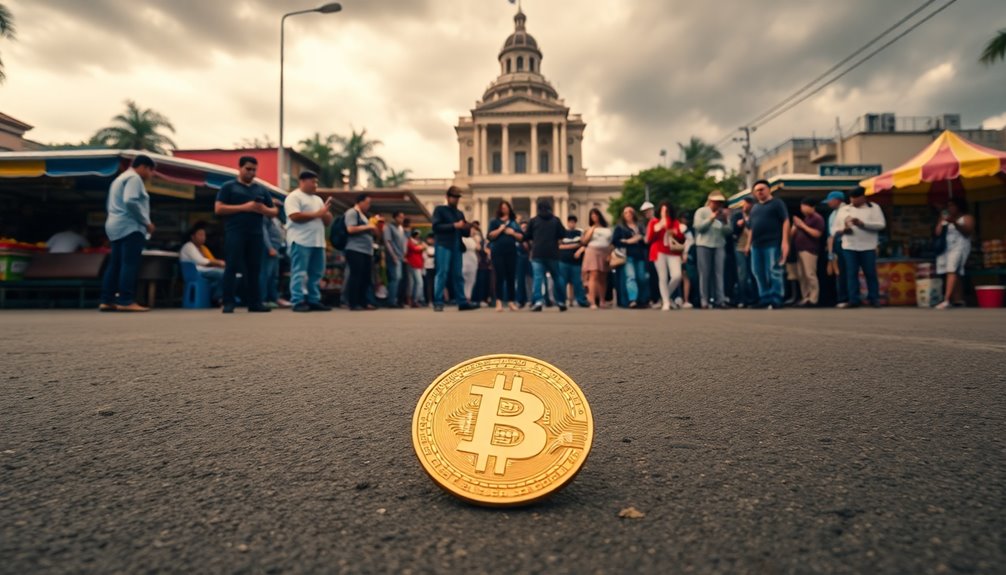You've likely heard about El Salvador's recent decision to revoke Bitcoin's status as legal currency. This shift, backed by a significant vote in the Legislative Assembly, signals a major turn in the country's economic policy. With international pressure and local skepticism influencing the change, you might wonder what this means for the future of cryptocurrencies in the region. What implications does this have for other nations considering similar paths?

In a surprising turn of events, El Salvador has officially reverted its stance on Bitcoin, no longer recognizing it as legal tender. This significant shift comes after a legislative vote on January 29, 2025, where the Legislative Assembly passed changes with an overwhelming 55–2 majority.
With these new rules set to take effect 90 days after publication, it marks a dramatic turn from the 2021 decision that made Bitcoin a core component of the nation's economy.
The new regulations signal a significant reversal from the 2021 decision that integrated Bitcoin into El Salvador's economy.
You'll soon find that businesses and individuals are no longer obligated to accept Bitcoin as payment, as its use has become entirely voluntary. This move aligns with pressure from the International Monetary Fund (IMF), which raised concerns about the financial risks associated with Bitcoin's volatility.
The IMF's insistence on addressing these risks was tied to a $1.4 billion loan agreement, making this change a crucial part of securing financial support for the country.
Despite the government's previous enthusiasm for Bitcoin, adoption has been limited, with only about 8% of Salvadorans using it for payments by 2024. The U.S. dollar continues to dominate the economy, serving as the official currency since 2001.
The legal adjustments reflect a broader understanding that many citizens remain skeptical about Bitcoin, with a 2024 survey revealing that 92% hadn't engaged in Bitcoin transactions.
The new legal framework means Bitcoin is no longer classified as currency, although it retains a limited status as legal tender. Several articles of the original Bitcoin Law have been modified or repealed, including the prohibition on using Bitcoin for tax payments or government services.
Now, residents must utilize U.S. dollars for essential services like business incorporation and passport applications, further underscoring the dollar's dominance in daily life.
Interestingly, while the government has made these changes, it continues to accumulate Bitcoin, holding over 6,000 units. This paradox illustrates a complex financial strategy that still considers Bitcoin's potential, albeit in a reduced role. [The government's current holdings exceed 6,000 Bitcoins, valued at approximately $577.38 million, indicating a continued commitment to Bitcoin strategy.]
The government seems committed to addressing public concerns over economic stability and transparency, especially in light of previous corruption allegations linked to the Bitcoin rollout.
As you navigate this shifting landscape, it's clear the government aims to strike a balance between innovation and stability, hoping to restore public confidence while mitigating the risks associated with Bitcoin's volatility.










